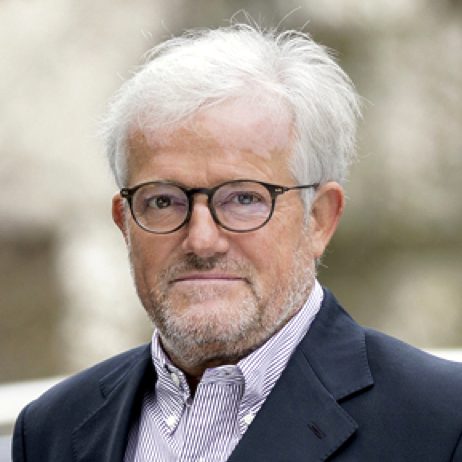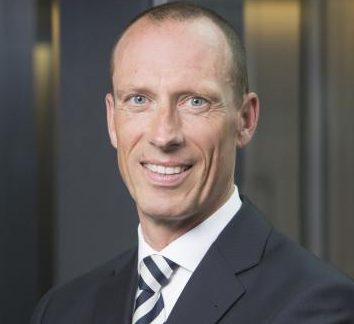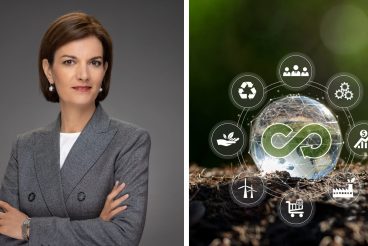
This is the first of a two-part Q&A examining the ‘holes’ in ESG as the acronym is widely understood. Here, Raymond Schadeck, with input from his colleague Marcus Müller, looks more holistically at an often ignored and systemic issue when companies assess their ESG efforts — and impact: why do so many organisations put all their focus on the ‘E’ (environment) at the cost of ignoring the ‘S’ (social) and ‘G’ (governance)?
Stay tuned for part 2, in which they offer more practical advice and insight into the role sustainability certifications can play, as well as approaches and efforts that can be taken by companies to solve this issue.
Let’s start with the basics. Should the ‘S’ and the ‘G’ in ESG receive as much focus as the ‘E’?
Simply put, the answer to the question above is a resounding “Yes.”
The ‘S’ and the ‘G’ are often overshadowed by the ‘E’. Why? Because what it means to have positive social and governance impact isn’t as overtly obvious as creating environmental impact.
Companies’ relationships with internal and external stakeholders, as well as the embrace of ethical and socially-conscious priorities (social impact), should be regarded as equally important elements of ESG goals. The same applies to the behaviour required of companies’ to comply with accurate and transparent accounting and leadership integrity/diversity/accountability (governance).
Ultimately, success in any of the three dimensions of ESG is dependent on success in the other two. You can’t draw the ESG-triangle with a single line. A company’s sustainability efforts will not succeed in the long term in regards to environmental performance if it’s not placing an equal focus on its social and governance practices.
As my friend and colleague Professor Marcus Müller explains: “We need a balance of the three ESG pillars. For example, consider the importance of the ‘S’: the ideas for ‘E’ are generated by people (the ‘S’), and implementation of these ideas also depends on those same people (again, the ‘S’). Rather than just looking at the potential impact on “S”, we should be considering all dimensions of the ‘S’ and their impact.”
In fact, we could go one step further and say that the ‘S’ and ‘G’ are in many ways more important than the ‘E,’ as they form the bedrock upon which the E stands – or crumbles. A company that fails to understand the meaning of success and fulfilment in today’s world, and how younger generations of employees want to live, work, and consume, will quickly lose any appeal in both the labour and consumer markets.
It’s through this approach that companies like Patagonia continue to attract not only high-spending customers to its stores, but also the world’s top talent to its workforce. Similarly, organisations such as Sherbrooke University, topping the charts in terms of its sustainable development performance, continues to captivate the attention of top professors and students alike.
These organisations, and many others, recognise not only the moral imperative that ESG represents, but also the tremendous opportunity available.
It should come as no surprise, then, that while more than 100,000 jobs have been cut from US-based tech companies and the traditional banking sector in 2023 alone, ESG-oriented companies and financial institutions struggle to hire enough staff. As the Financial Times puts it, a real “War for Climate Talent is Hotting Up.”
Companies that miss this train to a more sustainable future will find it increasingly difficult to attract both customers and staff and will soon be left stranded at the station.
Is there a danger that in terms of ESG, social and governance issues are liable to be ignored or put on the back burner/weakened in priority because of the urgency of the need to curb climate change?

Yes. The climate crisis, along with our collective willingness to confront it, has finally entered the mainstream. In doing so, it has shifted from being solely a concern of activists and sustainability leaders, to being a concern for all corporate and political decision-makers.
However, in some instances, this has come at the expense of crucial social and governance challenges. Numerous examples have been documented of well-intentioned climate leaders seeking to build large-scale solar farms or developing emissions-reducing projects in emerging markets who have been at odds with the land rights of indigenous groups.
We must be vigilant that our environmental progress does not come at the cost of standards of social and governance.
Furthermore, we mustn’t wear blinders when dealing with the ‘E’ – there is more to consider than Co2 in the atmosphere. For instance, reforesting our planet with monoculture plantations of fast-growing trees like acacia and eucalyptus may present crucial climate benefits — if managed correctly — but they can also have devastating effects on biodiversity.
Similarly, with all eyes on carbon, we hear very little about the rapid and catastrophic collapse of global insect populations which has been likened by entomologist David Wagner to “losing the limbs and twigs of the tree of life…leaving behind a very simplified and ugly tree.”
With climate change taking the front seat, discussions around social and governance aspects of the sustainability triangle are at risk of disappearing from the agendas of media and decision-makers.
Müller adds to this, pointing out that “by focusing attention, communication, etc. on ‘E’, we avoid the issue of us humans (the ‘S’) being the problem – and the solution.”
That said, I want to clarify: our ability to combat climate change is certainly the existential crisis facing our generation. But let’s not give in to a collective tunnel vision and become myopic to the social and governance elements that uphold the sustainable future in which all living things can thrive. Let’s dedicate the right resources to every pillar of ESG.
And while we’re on the topic of resources, let’s take a look at Luxembourg, our home country. Mobilizing resources towards all three legs of ESG will be a key challenge for the small- and medium-size companies that form the backbone of our economic model.
Indeed, SMEs may not have the same means or resources as larger international companies to reinvent themselves in a transition to a fully-aligned sustainable business model. We often observe that a lot of larger international companies with deep pockets do an excellent job promoting their sustainability ideas. However, only few walk the walk, leading many consumers to believe that things are moving faster than they actually are.
Overall, our progress is far too slow, which underscores once again the importance not only of making big, bold environmental (‘E’) claims, but also adhering to robust governance frameworks (‘G’) to hold organizations to account and ensure their claims quickly transform into actions.
As a famous African proverb says: “A roaring lion kills no game!”
Does governance really belong alongside environmental and social impact as an element of sustainability? Shouldn’t governance be important to investors even if they take no stance whatsoever on other issues?

Indeed, governance should be the key focus for investors in any scenario. Without governance, everything crumbles.
The key issue in today’s financial services world is that it‘s hard-wired – by virtue of the near-untouchable fiduciary duty – to focus exclusively on short-term financial returns. Sustainability, on the other hand, by definition implies a long-term focus.
As long as financial institutions offer their managers bonuses based on quarterly financial performance of their portfolio or department, there’s very little chance to succeed in the transition to a more sustainable business model.
This is why it’s mainly family businesses that have taken the lead in the transition to sustainability. It makes sense: by definition, their focus stretches way beyond Q1 or Q2 and values future generations. In addition, their managers manage their own money, which isn’t really the case in the financial services sector.
Another example are cooperatives that, like family businesses, have a long-term focus and manage the money of their members.
We have a lot to learn from the governance models of both family businesses and cooperatives.
Müller meanwhile argues that the ESG framework is not necessarily helpful for tackling sustainability in general. He points to John Elkington’s Triple bottom line approach (People, Planet, Profits) as a far more practical approach and guide for general everyday practice towards sustainability.
— — —
Raymond Schadeck is former CEO of Andersen Luxembourg and Ernst & Young Luxembourg. Since 2010, he has served as an independent director for private sector companies as well as the Luxembourg Sustainable Finance Initiative, the Luxembourg Microfinance and Development Fund and the Forestry and Climate Change Fund. He holds or has held positions as chairman of the board of Luxinnovation, Luxexpo The Box, the Luxembourg Institute of Independent Directors, Investing for Development and the UP Foundation, among others. He also is a member of VitalBriefing’s International Advisory Board.
Marcus B. Müller is a full time professor of management and an international scholar. After almost 20 years in the business world, Marcus moved into the scientific field of human motivation where he has combined leading-edge science — including his own scientific research — with his professional experience as a senior executive. He is now an internationally recognised strategic thinker, influential speaker, and management consultant inspiring individuals, organisations and governments on professional as well as personal performance, health, and well-being. In addition, he has been a B Leader for B Lab Europe for over two years.





